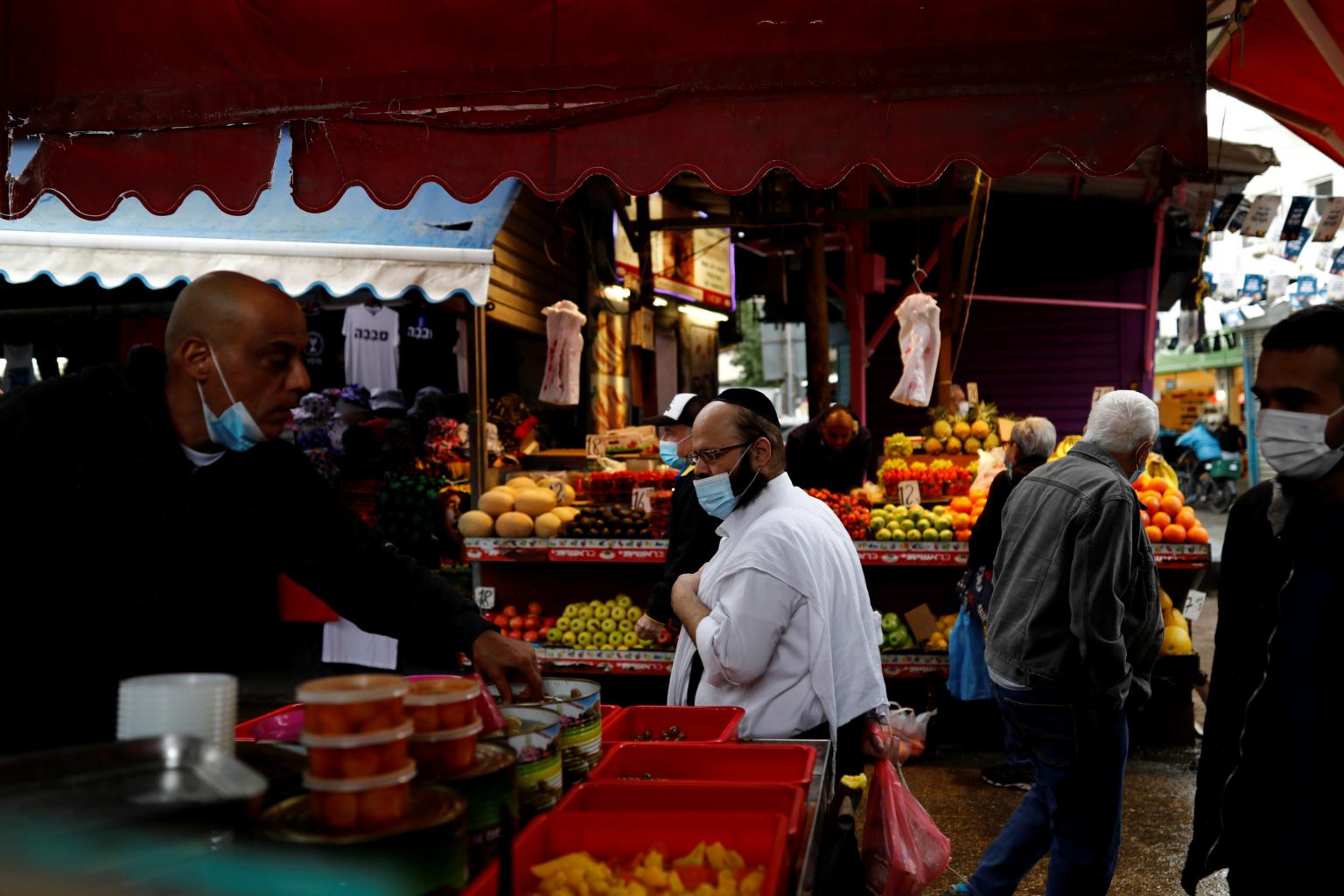With cases down, Israel retires two-tiered Covid-19 restrictions
Sign up now: Get ST's newsletters delivered to your inbox

About 81 per cent of Israel's adult population has been fully vaccinated.
PHOTO: REUTERS
JERUSALEM (NYTIMES) - With new coronavirus cases dropping to below 20 a day, Israel on Tuesday (June 1) retired its Green Pass system and will now allow equal access to restaurants, sports events, cultural activities and the like to vaccinated and unvaccinated citizens.
Restrictions on the sizes of gatherings have also been lifted.
The decision came less than three months after Israel, a real-world laboratory for the efficacy of the Pfizer-BioNTech vaccine, pioneered its digitised Green Pass system and became a test case for an inoculated society.
For now, the only remaining pandemic restriction inside the country is a requirement to wear masks in closed public spaces, although that, too, is under discussion by health officials. The main efforts to control the coronavirus are now centred on restrictions for travel in and out of Israel, based on testing and quarantine. Strict limitations remain on the entry of people who are not Israeli citizens.
"The Green Pass project was very successful," said Mr Tomer Lotan, the policy chief of Israel's national coronavirus response centre, summing up the experiment of the past few months. It was particularly effective, he said, as an incentive to encourage the 16-to-40 age group to get vaccinated and to allow Israel to reopen its economy.
"But anybody who did not get vaccinated by now is probably not going to," Mr Lotan said.
About 81 per cent of Israel's adult population has been fully vaccinated, but about 2.6 million children under 16 are still not eligible, out of a total population of slightly more than nine million. Up to one million people have chosen not to be inoculated, despite Israel's enviable supply of vaccine doses.
Even with schools fully open and operating in a regular format, infection rates among children have remained low. In general, national infection rates are down to single digits on some days, from a peak of 10,000 a day in January.
Israel was among the first countries to grapple with some of the legal and moral issues arising from a two-tiered system for vaccinated and unvaccinated people. Because getting vaccinated has been voluntary, some people who chose not to or could not be vaccinated argued that the Green Pass system was discriminatory. Enforcement was also patchy.
With infection rates so low, Mr Lotan said that the Green Pass had outlived its usefulness. Businesses complained about the additional burden of enforcing the rules. And movie complexes and other leisure attractions did not reopen, because it was unprofitable as long as unvaccinated children could not enter without showing a recent negative Covid-19 test, which many found impractical.
"A few months ago, if you would've told us we'd be in this current situation, it would probably seem like science-fiction," said Dr Nadav Davidovitch of the School of Public Health at Ben-Gurion University of the Negev.
The big question now, he said, is whether Israel has reached some degree of herd immunity. "Even if we are not there," he said, "we are probably very close."


